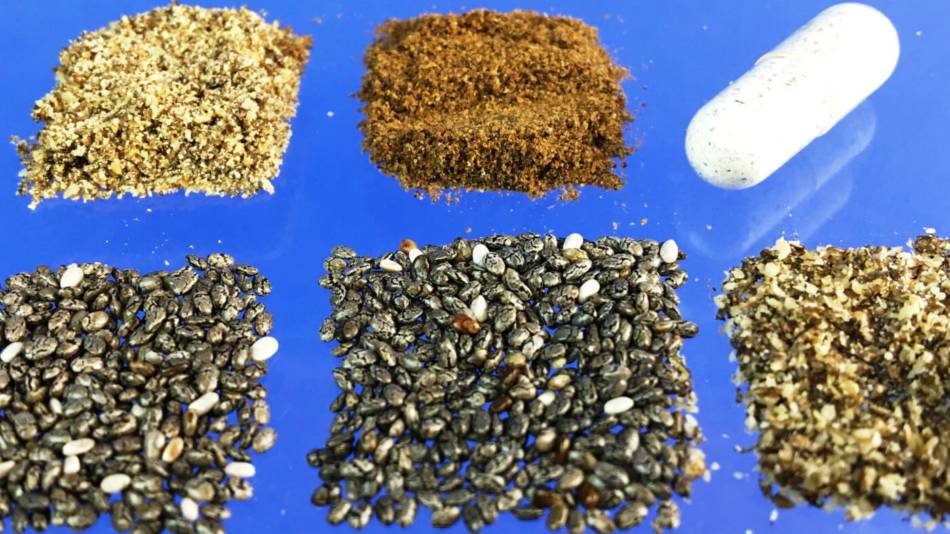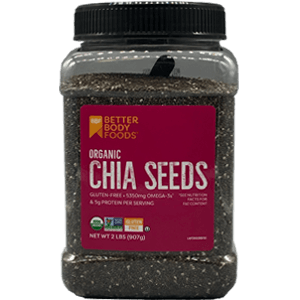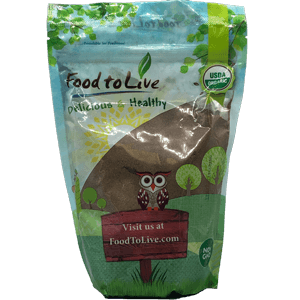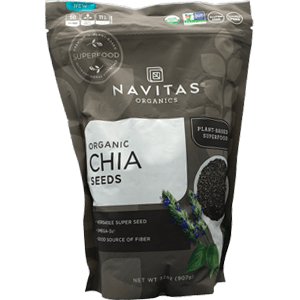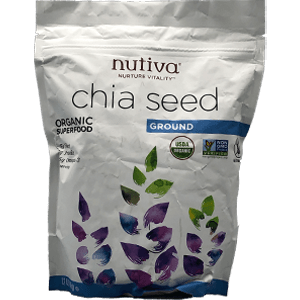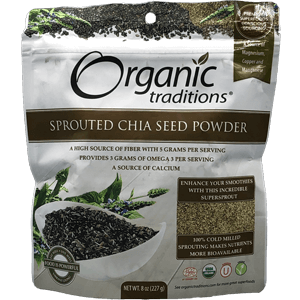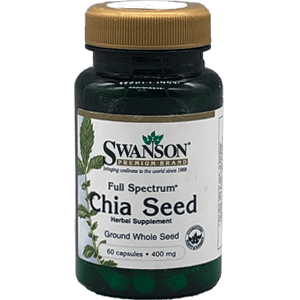Summary
-
What is chia seed?
Chia seeds are small, edible seeds that are highly nutritious and particularly rich in fiber (which forms an edible gel when the seeds are added to liquid). They are also a good source of healthful oils (particularly the omega-3 fatty acid ALA) and a range of minerals and vitamins. (See What It Is).
-
What does chia seed do?
Although highly nutritious, taking chia as a supplement not been shown to prevent or treat any health condition. (See What It Does).
-
What did CL's tests of chia find?
Among the tested chia seed products (including whole seed, ground seed, sprouted seed, seed flour, and a chia seed dietary supplement), ConsumerLab discovered one to be contaminated with lead and to contain amounts of nutrients very different from those listed on its label. All other products passed testing and provided similar amounts of nutrients to one another, although cost ranged several-fold across products to obtain the same amount of chia seed. (See What CL Found).

Which is the best chia seed product?
Among the products that passed testing and were "Approved" for their quality, CL selected a Top Pick for chia seed, costing less than half the price of other products.-
Chia safety and side effects:
Chia seeds readily absorb water and expand and can, therefore, be a choking hazard if consumed dry. Leave them in liquid for at least 10 minutes before consuming. The high fiber content may cause some gastrointestinal side effects and the seeds may cause allergic reactions in some people. Salmonella contamination has occurred in sprouted chia seed products, so ConsumerLab tested all products for Salmonella and other pathogenic organisms. (See Concerns and Cautions).
See our separate Review of
Flaxseed and Other Seed Oils Supplements.
Products tested in 2020
+— 14 sources
In addition the results of its expert testing, ConsumerLab uses only high-quality, evidence based, information sources. These sources include peer-reviewed studies and information from agencies such as the FDA and USDA, and the National Academy of Medicine. On evolving topics, studies from pre-print journals may be sourced. All of our content is reviewed by medical doctors and doctoral-level experts in pharmacology, toxicology, and chemistry. We continually update and medically review our information to keep our content trustworthy, accurate, and reliable. The following sources are referenced in this article:
- Burdge, Br J Nutr 2002
- Davis, Am J Clin Nutr 2003
- USDA Food Data Central, 2019
- Welch, Am J Clin Nutr 2010
- Ferreira, Nutr Hosp 2015
- Nieman, Nutrition Res 2009
- Shahparvari, J Hum Nutr Diet 2024
- Silva, J Medicinal Foods 2020
- Sorana, Am J Plant Sci 2018
- Albunni, J Agric Food Chem 2019
- Avila-Nava, J Ren Nutr 2021
- Garland, BMJ Case Rep 2020
- Simmelink, Case Rep Intern Med 2017
- Tomas-Perez, J Investig Allergol Clin Immunol 2018
As a ConsumerLab.com member, you may print a copy of this report for your personal use.
You can access a special print version by clicking the "Print" icon in the upper right corner of this report.
You can then use your web browser's print functions to print the whole report or just selected pages.
You may also email or post a link to this report using the web address above.
Non-members using the link will see a free summary and can join to view the full report.
Other means of copying or distributing this report, in part or full, are not permitted.
If you are sight-impaired and your computer is having trouble converting the text in this report to speech,
contact us for assistance at Membership@ConsumerLab.com or by
phone at 914-722-9149.

